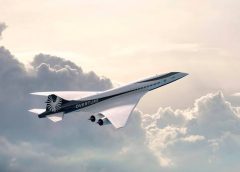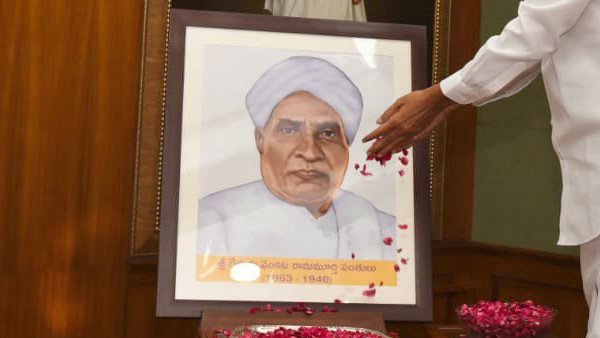
Boom chief fights doubts over bid to revive supersonic jet travel
[ad_1]
Boom Supersonic insists it has the demand and technology to make ultrafast jet travel profitable almost 20 years after Concorde was retired, as it fights back against intense industry scepticism.
“There’s a need for hundreds, if not thousands of these aeroplanes,” said chief executive Blake Scholl in an interview.
Boom claims to have identified 600 global routes where airlines could operate the Overture, a plane which would nearly halve the flying time between some destinations. New York to London would go from 6.5 hours to 3.5 hours, while Tokyo to Seattle would drop to 4.5 hours from 8.5 hours.
The absence of an engine maker for the Overture is one of several factors fuelling aviation industry doubts over whether it will ever take to the skies. Scholl said Boom was poised to make an “exciting engine announcement” in the coming months, but declined to say whether it had identified a partner for the project.
“It’s not just about the engine technology,” Scholl added. “It’s about some breakthroughs in the sustainability and breakthroughs in the business model that will lead to better economics.”
Denver-based Boom is developing a four-engine jet with a maximum cruising speed of Mach 1.7, or 70 per cent faster than the speed of sound. Its subsonic speed would be Mach 0.94, greater than the Mach 0.75 to 0.85 of traditional commercial jetliners.
The 200ft-long aircraft would carry 65 to 80 passengers across a range of 4,250 nautical miles with a full payload. By comparison a wide-body Boeing 787-8 can seat almost 250 passengers and travel 7,305 nautical miles. Boom has billed the Overture as “sustainable” because it is “designed to run on 100 per cent sustainable aviation fuel”, or SAF.
The company has an order book of 130 jets. Last week, American Airlines put down a deposit on 20 Overtures with an option for 40 more, while Japan Airlines pre-ordered 20 aircraft in 2017. United Airlines became the first US carrier to order Overtures in 2021.
The orders from some of the world’s largest airlines have given some credibility to a project that many analysts and aviation executives say will never come to fruition.
Overture “is a paper aeroplane right now,” said Kevin Michaels, managing director of AeroDynamic Advisory. There are “so many issues for Boom to overcome”, he added. “I don’t expect to see it”.
Since it was founded in 2014, the company has raised $600mn from investors, Scholl said. It will need billions more to complete the aeroplane.
Investors and analysts are closely watching the development of Boom’s XB-1, a small technological demonstrator that the start-up says it intends to test fly by the end of the year despite having missed several self-imposed deadlines.
There are questions, too, over whether there will be a market for so many superfast jets — which are prohibited from flying over land at supersonic speeds due to the noise they make, known as a sonic boom. Just 14 Concordes entered service and carriers Air France and British Airways were only able to use them on select transatlantic routes.
Scholl predicted that the production of SAF would grow rapidly before Boom’s 2029 target to operate its first passenger flight. Plentiful supplies of sustainable aviation fuel are seen as a requisite for new supersonic aircraft given that they use much more energy than a regular aeroplane.
“The economics are always challenging on something like that,” said Bruce McClelland, an analyst at Teal Group. “It’s an exponential increase in fuel” and “there’s [nowhere] near enough SAF to meet demand”.
“To me, this is a massive exercise in greenwashing. It just boggles my mind how they’re going to make that square,” he added.
An Overture-like aircraft would burn seven times more fuel per seat kilometre than a subsonic aeroplane, said Dan Rutherford, aviation programme director at the International Council on Clean Transportation. He wrote in a tweet that Boom’s SAF analysis “completely ignores actual SAF growth trajectories”.
“You’re talking about 20 times the fuel bill per passenger,” Rutherford added. “What airline would take its most expensive fuel and earmark it for the least efficient plane?”
Despite pre-orders from some large airlines, many other executives remain unconvinced.
“Candidly, I have a lot more questions than answers still,” Delta chief executive Ed Bastian told Fox Business last week. “Until we’re confident that we can actually generate a reliable return from the aircraft, that’s not where we’re investing.”
[ad_2]
Source link


